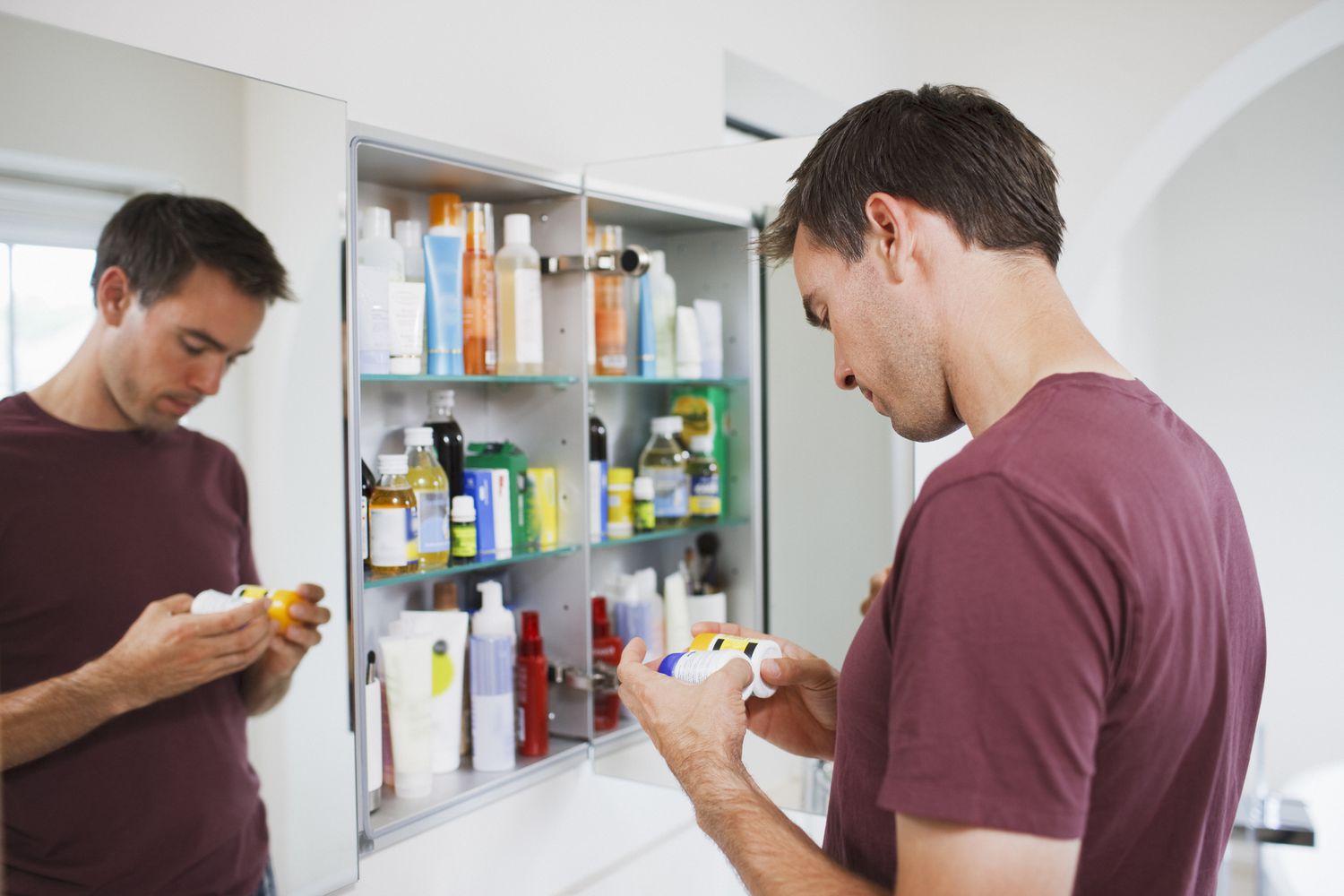Experts Warn Against Storing Medications in Bathroom Cabinets, Citing Safety Concerns

Storing medication in the bathroom cabinet could have unwanted, even dangerous, consequences.
Bathrooms often have higher humidity levels compared to other rooms in the house. This excess moisture not only fogs up mirrors but can also affect any medicines stored there.
“Medicines should not be stored in the bathroom or in a bathroom cabinet,” advises Shazia Zafar, RPh, a pharmacist from Lake Oswego, OR. She states, “The humidity from the shower can seep in, and this can deteriorate your medicines.”
The National Library of Medicine suggests that moisture and humidity can reduce the effectiveness of medicines or cause them to spoil before their expiry date.
The potency of a medicine is crucial. If it changes, it is uncertain whether you're administering the correct dose.
Heat and moisture can harm pills and capsules. For instance, the environmental change could decompose aspirin into vinegar and salicylic acid, potentially causing stomach discomfort.
However, just because bathroom humidity can adversely affect medications does not mean it always will.
Lisa Gualtieri, PhD, an associate professor of public health and community medicine at Tufts University School of Medicine, states that “Most homes have bathroom ventilation, which lessens the effect of humidity.”
Michelle A Chui, PharmD, PhD, a professor in pharmacy administration at the University of Wisconsin-Madison School of Pharmacy, does not believe that shower or bath moisture or general home humidity can spoil medicines in your medicine cabinet.
Where you keep your medication and the following general safety tips to maintain your medication's expiry and potency are important.
A 2021 study that examined 154 U.S. households found that only 23.3% stored all of their medicines correctly.
There were temperature issues with about 17% of the 457 medicines in these spaces, and 11% had moisture issues; both issues affected 9% of the medicines.
A 2022 survey found that people most commonly stored medicines in the kitchen (31.9%), bathrooms (28.9%), and bedrooms (21.3%). About 31.7% kept medications on counters around these rooms.
There’s not a one-size-fits-all rule for where to store medicines, the best location often differs based on their composition and form (liquid, gel, pill, and so on).
“The most significant part of the location selection is incorporating it into a routine, such as reaching for the milk for morning coffee and seeing the medication in front of the milk—it makes adherence easier,” Gualtieri says. “Everyone has different routines, so it needs to be customized.”
It is not only important to consider safe storage tips but also to ensure that medicines are stored in a place that can be easily remembered.
Although ventilation may be beneficial for safe medication storage, it also matters to consider the moisture and temperature levels of your bathroom.
The ideal humidity for storing medication is below 60%, but one study found that humidity in bathrooms varied from 33% to 100% in the households studied.
Just as humidity, a place's temperature can greatly influence how medication should be stored.
The most suitable temperature for most medicines is between 59 and 86 degrees. In the same study, bathroom temperatures ranged from 56.8 to 88.7 degrees.
Some medications are particularly sensitive to temperature changes. For example, most antibiotics and insulin are sensitive to warmth. Certain birth control types, like the ring, need refrigeration.
Even transferring medication to a kitchen cabinet instead of a bathroom cabinet can improve storage conditions, as kitchens are typically cooler and dryer. Also, keeping medicines at a higher level can keep them out of children's reach.
Regardless of where you store medication, keep it in its original container, which is designed to protect the medicine from environmental factors, says Chui.
“The package should accommodate reasonable humidity,” she explains.
Zafar suggests avoiding storing medication near bright windows or storage rooms that are affected by outdoor weather conditions.
Also, it's important to avoid places with changing temperatures like near an oven. Furthermore, she advises, “Don't store them in a cabinet above a stove or sink and refrain from storing them in the refrigerator unless recommended by the pharmacist, label, or package insert after opening.”
Despite the unique problems posed by medicine cabinets, Chui is more worried about the potential damage to medication during shipping, such as temperature changes.
“I consider mail order to be quite risky,” she says.
To combat the possibility of packages sitting in less-than-ideal temperatures during and after delivery, she advises people to use brick-and-mortar locations when they can.
If you receive medication by mail that’s supposed to be refrigerated, it’s important to check that it’s cool to the touch when you open it, Jennifer Young, PharmD, a medication safety specialist at the Institute For Safe Medication Practices, told Health.
“Some pharmacies add a temperature tracker card into their packages, which will alert the patient if the temperature within the compartment went out of range,” she said.
Another possible risk you face when storing medication is storing every member of the household’s medication together—opening you up to the possibility of taking someone else’s medicine by mistake.
There are a few simple things to keep in mind when storing medications, according to experts.
The best way to safely store medication is to read and follow the instructions that come with or on the package. Pay attention to the bottle and note the expiration date, said Chui.
Properly unpacking medication is also important. For instance, if your medication comes with a cotton ball on top, take it out—this way, the cotton doesn’t absorb moisture.
It’s also crucial to note any unusual changes in your medication. Don’t take anything that’s changed color, or pills that are harder/softer than normal or are sticking together.
If you’re traveling, prioritize keeping pills in their original packaging instead of transferring them to a different bag. The dark color of prescription bottles can prevent them from light exposure.
“When you’re traveling with medication, it’s best to keep it in your carry-on luggage and in its original container, so that airport security personnel know that the pills were prescribed by a healthcare provider,” explained Zafar.
Finally, don’t be afraid to have your pharmacist review your medications. They can spot any abnormalities and advise you on best storage practices for your specific medications.




